
The Confederation of African Football, or CAF for short, is the administrative and controlling body for association football, futsal and beach soccer in Africa. It was established on 8 February 1957 at the Grand Hotel in Khartoum, Sudan by the national football associations of Egypt, Ethiopia, South Africa and Sudan, following formal discussions between the aforementioned associations at the FIFA Congress held on 7 June 1956 at Avenida Hotel in Lisbon, Portugal.
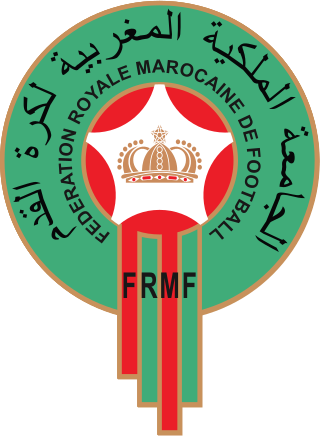
The Morocco national football team, nicknamed "the Atlas Lions", represents Morocco in men's international football competitions. It is controlled by the Royal Moroccan Football Federation, also known as FRMF. The team's colours are red and green. The team is a member of both FIFA and the Confederation of African Football (CAF).

The Morocco women's national football team represents Morocco in international women's football and is controlled by the Royal Moroccan Football Federation. The team played its first international match in 1998, as part of the third Women's Africa Cup of Nations.

The 2011 FIFA Beach Soccer World Cup was the sixth edition of the FIFA Beach Soccer World Cup, governed by FIFA. Overall, this was the 16th edition of a world cup in beach soccer since the establishment of the Beach Soccer World Championships which ran from 1995–2004 but was not governed by FIFA. It took place at the Stadio del Mare, a temporary stadium at the Marina di Ravenna in Ravenna, Italy, the third tournament to take place outside Brazil, which started on September 1 and ended on September 11, 2011. However this was the first tournament to take place under the new two year basis; now the FIFA Beach Soccer World Cup takes place once every two years. The tournament was confirmed in March 2010.
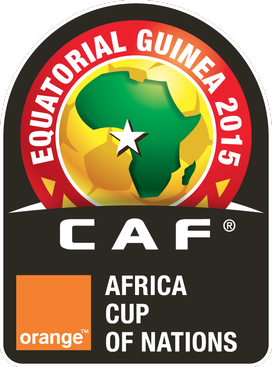
The 2015 Africa Cup of Nations, known as the Orange Africa Cup of Nations, Equatorial Guinea 2015 for sponsorship reasons, was the 30th staging of the Africa Cup of Nations, the international men's football championship of Africa. It was organized by the Confederation of African Football (CAF) and was held from 17 January to 8 February 2015.

The 2017 Africa Cup of Nations, known as the Total2017 Africa Cup of Nations for sponsorship reasons, was the 31st edition of the Africa Cup of Nations, the biennial international men's football championship of Africa organized by the Confederation of African Football (CAF). The tournament was scheduled to be hosted by Libya, until CAF rescinded its hosting rights in August 2014 due to the Second Libyan civil war. The tournament was instead hosted by Gabon. This event was also part of the Africa Cup of Nations 60th Anniversary.
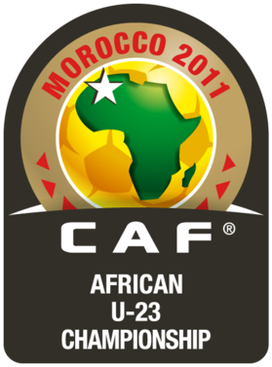
The 2011 African U-23 Championship was the first edition of the football tournament for players under 23 years. It was originally scheduled to be hosted by Egypt from 26 November to 10 December 2011. However, less than two months prior to the start of the tournament, Egyptian authorities decided against hosting the competition because of security concerns. On 13 October 2011, Morocco was chosen as the replacement to host the tournament.

The Morocco national beach soccer team represents Morocco in international beach soccer competitions and is controlled by the Royal Moroccan Football Federation, the governing body for football in Morocco.
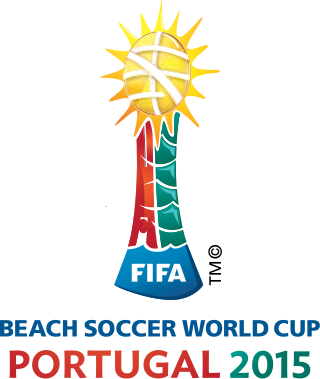
The 2015 FIFA Beach Soccer World Cup was the eighth edition of the FIFA Beach Soccer World Cup, the premier international beach soccer competition for men's national teams, which has been organized by FIFA since 2005. Overall, this was the 18th edition of a world cup in beach soccer since the establishment of the Beach Soccer World Championships which ran from 1995 to 2004 but was not governed by FIFA. It was also the third edition to take place under the biennial system introduced in 2009.
The 2015 Africa Cup of Nations qualification matches determined the participating teams for the 2015 Africa Cup of Nations.

The 2015 CAF Beach Soccer Championship, also known as the 2015 Africa Beach Soccer Cup of Nations, was a beach soccer tournament which took place in Roche Caiman, Seychelles on 14–19 April 2015. This was the first time that the CAF Beach Soccer Championship was held in Seychelles. All matches were played at the Roche Caiman Sports Complex.
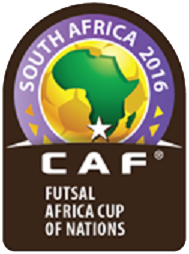
The 2016 Africa Futsal Cup of Nations was the 5th edition of the Africa Futsal Cup of Nations, the quadrennial international futsal championship organised by the Confederation of African Football (CAF) for the men's national teams of Africa. The tournament was held in South Africa between 15–24 April 2016. A total of eight teams played in the tournament.

The 2018 African Nations Championship, known as the Total African Nations Championship was the 5th edition of the African Nations Championship, a biennial football tournament organized by the Confederation of African Football (CAF) exclusively featuring players from the respective national championships. It took place between 12 January and 4 February 2018. In February 2016, Kenya was announced as the host nation but in September 2017, CAF decided to change the host nation due to a lack of progress with preparations. Morocco was announced as the host nation in October 2017.
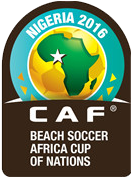
The 2016 Africa Beach Soccer Cup of Nations, also known as the 2016 CAF Beach Soccer Championship, was a beach soccer tournament which took place in Lagos, Nigeria in December, to determine the best beach soccer nation in Africa and doubles as a qualification event for the 2017 FIFA Beach Soccer World Cup, with the two finalists progressing to the finals in the Bahamas. This was the first time that the tournament is held in Nigeria.

The 2018 Africa Beach Soccer Cup of Nations was the third edition of the Africa Beach Soccer Cup of Nations (BSAFCON), the premier beach soccer championship in Africa contested by men's national teams who are members of the Confederation of African Football (CAF). Originally organised by Beach Soccer Worldwide (BSWW) under the title FIFA Beach Soccer World Cup CAF qualifier, in 2015, CAF became organisers and began using the BSAFCON title to which the competition was officially renamed the next year. Overall, this was the 9th edition of the event.

The 2022 African Nations Championship, known as CHAN 2022 for short and/or the TotalEnergies African Nations Championship for sponsorship purposes, will be the 7th edition of the biennial association football tournament organized by the Confederation of African Football (CAF), featuring national teams consisting of players currently playing in their respective local leagues. This edition of the tournament will be held in Algeria between 13 January and 4 February 2023.

The 2021 Africa Beach Soccer Cup of Nations was the fourth edition of the Africa Beach Soccer Cup of Nations (BSAFCON), the premier beach soccer championship in Africa contested by men's national teams who are members of the Confederation of African Football (CAF). Originally organised by Beach Soccer Worldwide (BSWW) under the title FIFA Beach Soccer World Cup CAF qualifier, in 2015, CAF became organisers and began using the BSAFCON title to which the competition was officially renamed the next year. Overall, this was the 10th edition of the event.

The 2022 Women's Africa Cup of Nations, officially known as the 2022 TotalEnergies Women's Africa Cup of Nations for sponsorship purposes, was the 14th edition of the biennial African international women's football tournament organized by the Confederation of African Football (CAF), hosted by Morocco from 2 to 23 July 2022.

The 2022 Women's Africa Cup of Nations Final was an association football match played between Morocco and South Africa at Prince Moulay Abdellah Stadium in Rabat, Morocco on 23rd July 2022 and the 14th final of the biennial international women's football tournament organized by CAF.
The 2023 Africa U-23 Cup of Nations qualification was a men's under-23 football competition, which decided the participating teams of the 2023 Africa U-23 Cup of Nations.
















